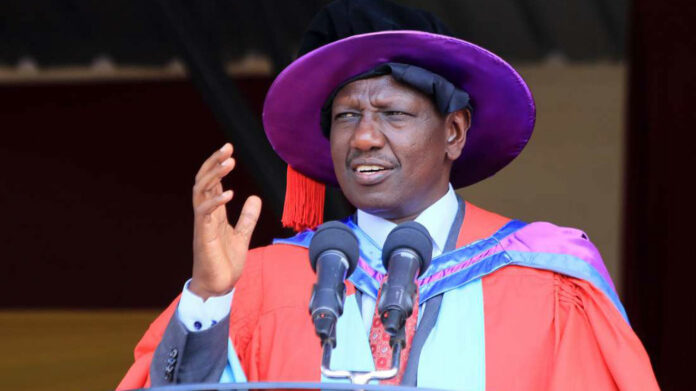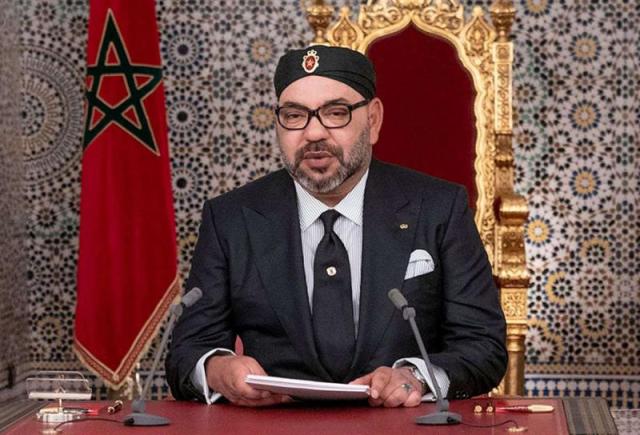Upon election to the Presidency of the Republic of Kenya in one of the most unpredictable elections in the democratic history of the African continent, HE. Dr. William Samoei Ruto got to the stage as not only a new breed of African leaders but also as the most educated leader on the continent as of now.
Biznakenya has gone an extra mile to get you the updated list of the top 10 most educated leaders in Africa.
HE. William Ruto’s Academic journey
Ruto first studied at Kerotet Primary School, then Wareng Secondary School and Kapsabet Boys High School in Nandi County, where he obtained his primary, Ordinary Level and Advanced Level education, respectively. He then enrolled at the University of Nairobi, to study Botany and Zoology, eventually graduating in 1990 with a bachelor of science in both fields. The following year after his graduation, he enrolled for a Ph.D. at the University of Nairobi, after several setbacks, he completed and graduated on 21 December 2018 with a Ph.D. from the university.
Ruto authored several papers including a paper titled Plant Species Diversity and Composition of Two Wetland in the Nairobi National Park, Kenya. During his time in the campus for his undergraduate education, Ruto was an active member of the Christian Union. He also served as the Chairman of the University of Nairobi’s choir.
2. King Mohammed VI, MOROCCO
King Mohammed VI took over the throne of Morocco in 1999 after the death of his father, King Hassan. As king, he is the superpower of Morocco and is responsible for appointing a Prime Minister in the country.
Academic Qualifications:
- Bachelor’s Degree in Law, Mohammed V University at Agdal.
- Ph.D. in Law, French University of Nice Sophia Antipolis.
- In 1987, Mohammed obtained his first Certificat d’Études Supérieures (CES) in political sciences, and in July 1988 he obtained a Diplôme d’Études Approfondies (DEA) in public law.
3. President Peter Mutharika, MALAWI
President Mutharika is a renowned international Economic Law expert; his remarkable academic qualifications were a big reason behind his success at the presidential polls in 2014. He served as an adviser to his elder brother, ex-President Bingu Wa Mutharika who died in 2012.
Academic Qualifications:
- Law Degree, University of London.
- Master of Laws Degree (LL.M), Yale University.
- Doctor of the Science of Law Degree (JSD), Yale University.
4. President Alassane Ouattara, IVORY COAST
President Alassane has been at Ivory Coasts’s helm of leadership since 2010. He is a seasoned economist and financial expert. Critics argue that his understanding of economics has significantly impacted and sustained the economy of the Ivory Coast, making it one of the best in terms of economic growth in Africa.
Academic Qualifications:
- Bachelor of Science Degree, Drexel University, Philadelphia, Pennsylvania.
- Master’s Degree in Economics, University of Pennsylvania.
- Ph.D. in Economics, University of Pennsylvania.
5. Prime Minister Moeketsi Majoro, LESOTHO
Moeketsi Majoro became the sixth prime minister of Lesotho in May 2020. He previously held the office of the Minister of Finance in the cabinet of Tom Thabane from 2017 to 2020. He is also a former senator and a member of the All Basotho Convention (ABC).
Academic Qualifications:
- BA degree in Economics from the National University of Lesotho
- MSc in Agricultural Economics from the Washington State University
- PhD in Natural Resource Economics from the Washington State University.
6. President Ibrahim Boubacar Keita, MALI
Ibrahim Keita has ruled Mali since 2013. According to reports, his administration focuses on one key goal, and that is to eliminate corruption in the country. For this reason, he swears not to tolerate even the slightest dishonesty.
Academic Qualifications:
- Ibrahim studied at the Lycée Janson-de-Sailly in Paris and Lycée Askia-Mohamed in Bamako.
- He furthered at the University of Dakar, the University of Paris I and the Institut d’Histoire des Relations Internationales Contemporaines (IHRIC; Institute of the Modern History of International Relations).
- Ibrahim Keita has three degrees in Political International Relations, History, and Political Science, including graduate degrees in Political Science and International Relations.
- He also has a Master’s Degree in History
7. President Faure Essozimma Gnassingbe, TOGO
Faure Essozimma Gnassingbe became the president of Togo on 24 April 2005 and has remained so ever since then. He grabbed the power following his father Gnassigbe Eyadema’s death, who had already ruled the country for about 38 years.
Academic Qualifications:
- Bachelor’s Degree in Financial Management from the Sorbonne, in Paris.
- Master’s Degree in Business Administration from George Washington University in the United States.
8. George Weah, LIBERIA
Before venturing into politics, George Weah was a football player famously known as one of Africa’s best players of all time. He had played in the UEFA Champions League as well as the English Premier League. He also became the first and only African player to win FIFA world’s best player and other noteworthy awards.
Academic Qualifications:
- BA in Sports Management from Parkwood University, London (Note that this certificate is honourary, and not earned from the study)
- Degree in Business Administration from Devry Univesity Maimi
- Master’s Degree in Management from Keller’s Graduate School of Management.
9. President Hage Geingob, NAMIBIA
Hage Geingob is the third and current president of Namibia. He took power in 2015 after serving as the first Prime Minister of Namibia.
Academic Qualifications:
- Bachelor of Arts from Fordham University, New York.
- Master of Arts in International Relations from Graduate Faculty of The New School, New York.
10. President Jorge Carlos de Almeida Fonseca, CAPE VERDE
President Jorge Fonseca is a Cape Verdean politician, lawyer and university professor who has been President of Cape Verde since 2011. He served as Minister of Foreign Affairs from 1991 to 1993.
Academic Qualifications:
- Graduate in Law, University of Lisbon, Portugal
- Masters in Legal Sciences Faculty of Law, University of Lisbon, Portugal


















